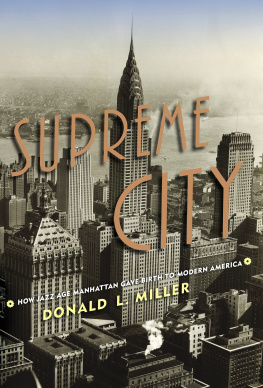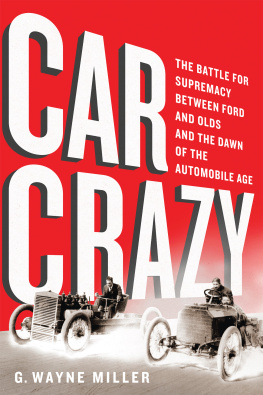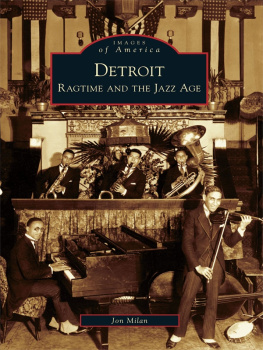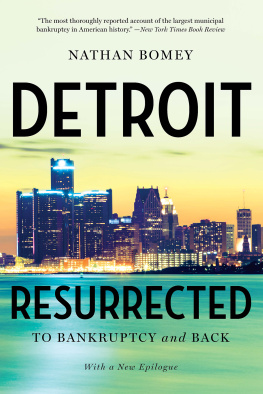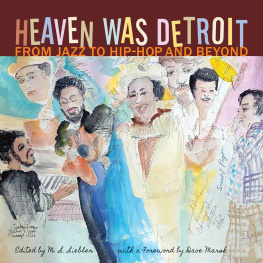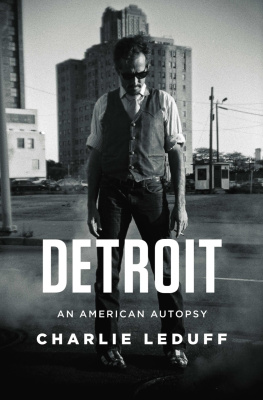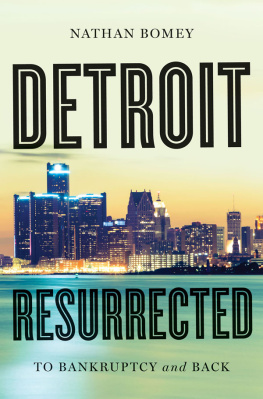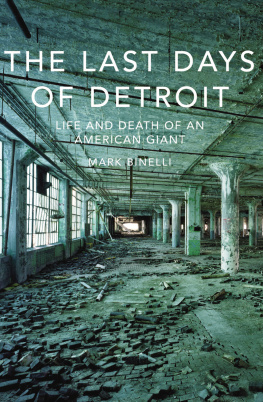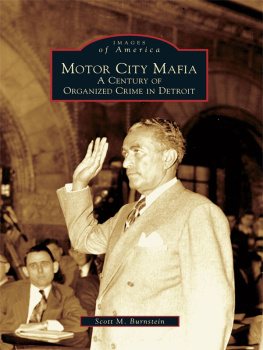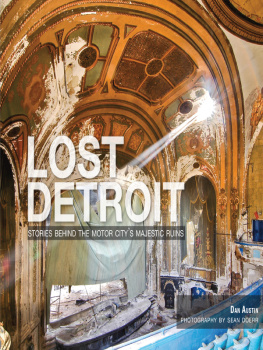DETROIT ROCK CITY
BOOKS BY STEVE MILLER
A Slaying in the Suburbs:
The Tara Grant Murder
Touch and Go: The Complete Hardcore
Punk Zine 7983, editor
Girl, Wanted:
The Chase for Sarah Pender
Commando: The Johnny Ramone Autobiography, co-editor
Nobodys Women: The Crimes and Victims of Anthony Sowell, the Cleveland Serial Killer
DETROIT
ROCK
CITY
The Uncensored History
of Rock n Roll in
Americas Loudest City
Steve Miller

DA CAPO PRESS
A Member of the Perseus Books Group
Copyright 2013 by Steve Miller
All rights reserved. No part of this publication may be reproduced, stored in a retrieval system, or transmitted, in any form or by any means, electronic, mechanical, photocopying, recording, or otherwise, without the prior written permission of the publisher. For information, address Da Capo Press, 44 Farnsworth Street, 3rd Floor, Boston, MA 02210.
Designed by Timm Bryson
Set in 10.75 point Adobe Jenson Pro by The Perseus Books Group
Thanks to the following publishers and writers for granting permission to use original interviews and material previously published for this book:
Ron and Scott Asheton interviews by Brian Bowe, pages 4255, used by permission of Brian Bowe.
Ron Asheton, page 49, courtesy of Long Gone John, Sympathy For The Record Industry, Sympathyrecords.com, SFTRI 163.
Bob Seger interview, page 77, by John Morthland, July 1977, courtesy of Creem magazine.
Bob Seger interview, page 124, by Lowell Cauffiel, August 1976, courtesy of Creem magazine.
Library of Congress Cataloging-in-Publication Data
Miller, Steve
Detroit rock city : the uncensored history of rock n roll in Americas loudest city / Steve Miller.First Da Capo Press edition.
pages cm
Includes bibliographical references.
ISBN 978-0-306-82184-4 (e-book) 1. Rock musicMichiganDetroitHistory and criticism. 2. Rock musiciansMichiganDetroit. I. Title.
ML3534.3.M59 2013
781.6609774'34dc23
2013004433
Published by Da Capo Press
A Member of the Perseus Books Group
www.dacapopress.com
Da Capo Press books are available at special discounts for bulk purchases in the U.S. by corporations, institutions, and other organizations. For more information, please contact the Special Markets Department at the Perseus Books Group, 2300 Chestnut Street, Suite 200, Philadelphia, PA 19103, or call (800) 810-4145, ext. 5000, or e-mail .
10 9 8 7 6 5 4 3 2 1
CONTENTS
Photos follow
This book, like so many others, starts in a bar. In winter 2002 a musician I knew in Lansing, Michigan, approached me as I sat at a table alone.
Hey, youre a journalist or something, right? he asked.
Yes, I nodded; few of my friends knew what I did for a living. I lived at the time in Washington, DC, a world away. I was a national reporter, covering things and events that would affect their lives in ways they couldnt perceive. But they didnt care. I was still the guy who liked good music and drank with them and went to the after-parties and had some good stories about early hardcore and touring the states before there was a network of clubs and crash palaces.
So why hasnt anyone ever written a book about Detroits rock scene and the influence its had on rock and roll? my pal asked.
I had no answer. Detroit was just part of growing up. Did I take it for granted?
My dad was a copy editor at the Detroit News in 1967, commuting from our apartment in East Lansing, eighty miles west of Detroit, where he was getting his doctorate at Michigan State University. One steamy night that year we drove to Tiger Stadium to catch the White Sox play the Tigers, watching the gun-toting National Guard troops on the rooftops. The riots were two weeks prior.
In the fall of 1968 I was wandering across a park in East Lansing and heard what sounded like a sonic explosion, a cacophony of thud and high-end screech coming from a small, brick community center. I ran to the doors to check into what was causing this heavenly noise. Locked. I went around to the rear of the building, where an open window was giving everyone a free listen to the soundcheck of the MC5. Looking insidethe amps draped with the American flags, the buckskin jackets, and the wild hairfor an eleven-year-old, it was a life-giving experience I have never forgotten.
We started going to big shows in Detroit, national acts that hit Detroit at every chanceAerosmith, Black Sabbath, Lou Reed, and Roxy Musicat great venues like the Michigan Palace, Cobo Center, and Masonic Auditorium. Detroit was The Show.
We all read Creem magazine in high school, learning about the real deal in a way that effete bullshit like Rolling Stone could never conceive of. Creem was Detroit; the rest were from, well, somewhere else. Creem wrote about the Stooges more than anyone else. When it came down to Mick Jagger vs. Iggy Pop in the rock-star idolatry sweepstakes, Iggy came out on top every time. He was Detroit. I would puff furiously on my Newport at the notion that anyone outside Iggy could be any more badass. Starting at age fifteen, we listened to the Stooges as we drove in cars on back roads and cradled bottles of Mad Dog 2020.
So why hasnt anyone ever written a book about Detroits rock scene and the influence its had on rock and roll?
The question was a killer. I had no answer, but this is the response, eleven years later. Along the way to making this happen, I confirmed a number of my beliefs about music. Number one is that Detroit is the most influential rock-and-roll city on earthnot New York, not Los Angeles, not London, and not San Francisco. Its incontrovertible.
Another is that Detroits fade as a city was part of the natural order, an ebbing of power for a city that held half of the US auto-making jobs. Wayne Kramer, his mind finely honed, told me as we sat in his Los Angeles studio in 2011 that the MC5 were like a barometer for Detroit. Unearths an interesting question, the one of free will. Which I am more and more convinced does not exist. We think were making decisions, but our options are so affected by our surroundings. If youre born in the wrong family, wrong neighborhood, youre not going to make it. You cant be rich someday. You aint the kid who found out about computers like Bill Gates. He was in a unique situation. So the decline of the MC5 and the parallel decline of Detroit is not a mystery to me, the things we were going through; we were not alone. A lot of other people were in desperate situations as well. And some of them had guns.


